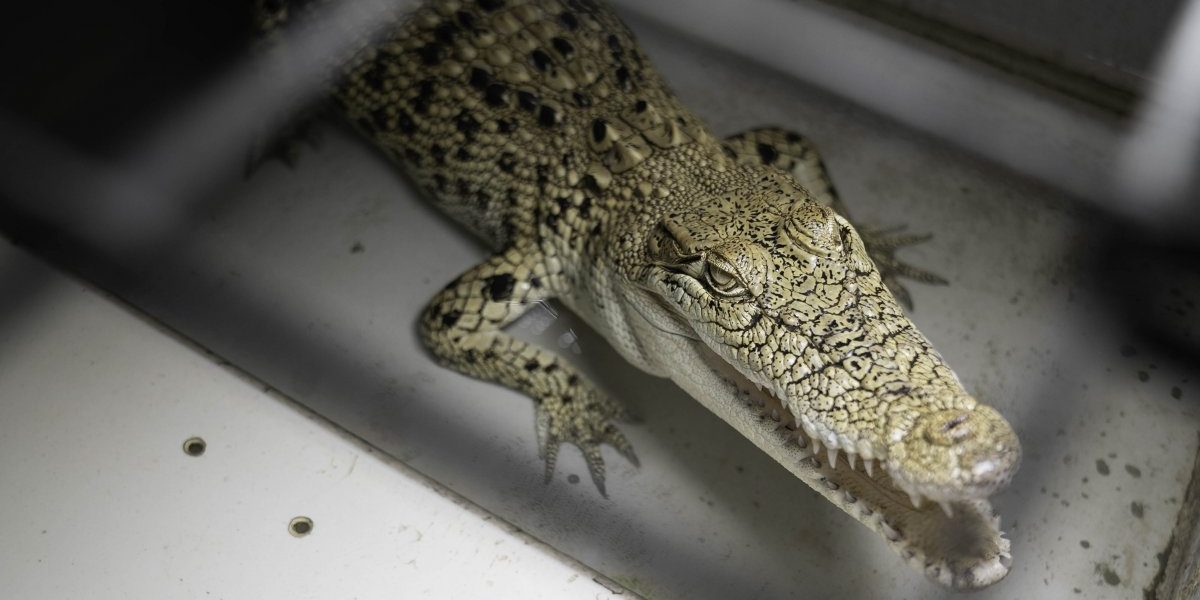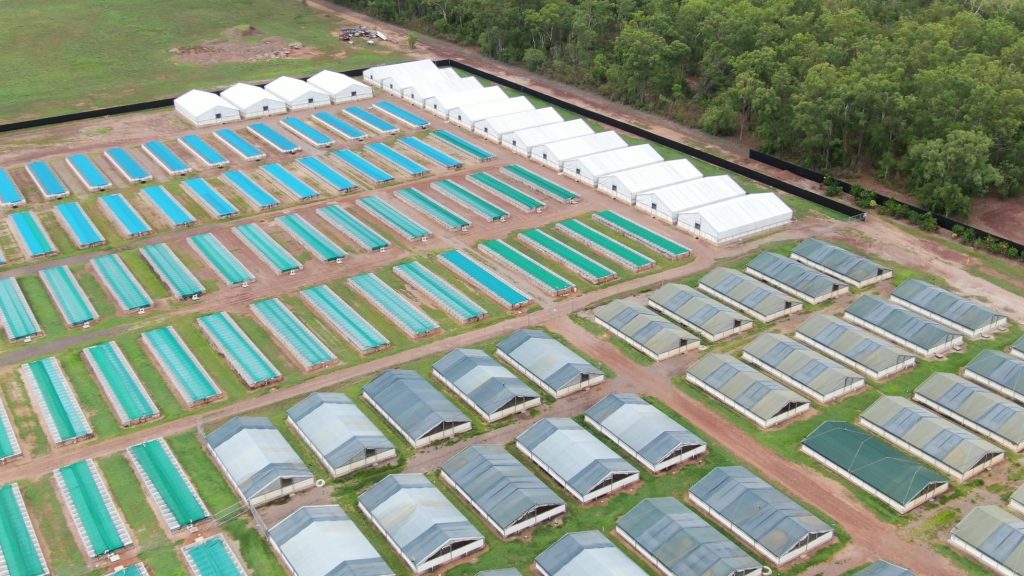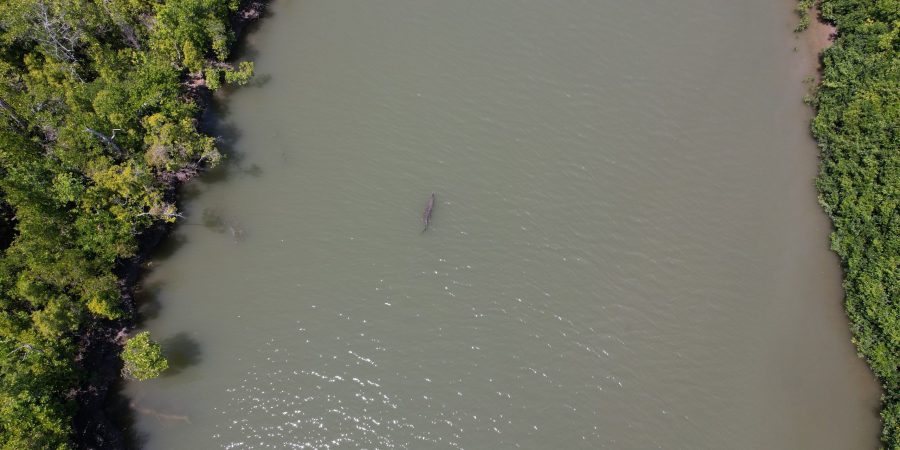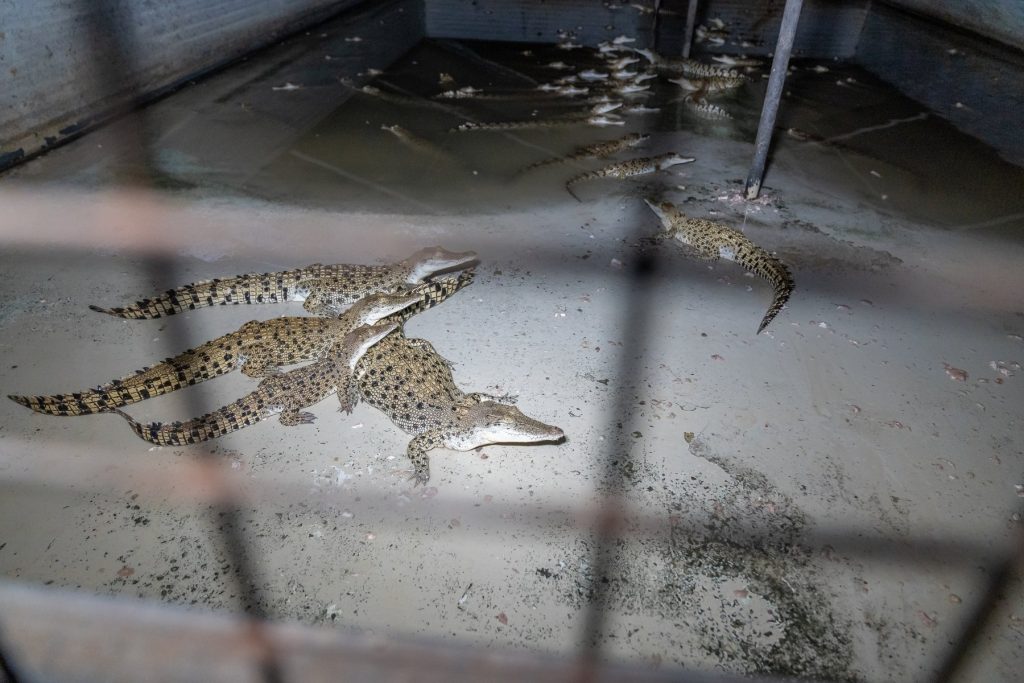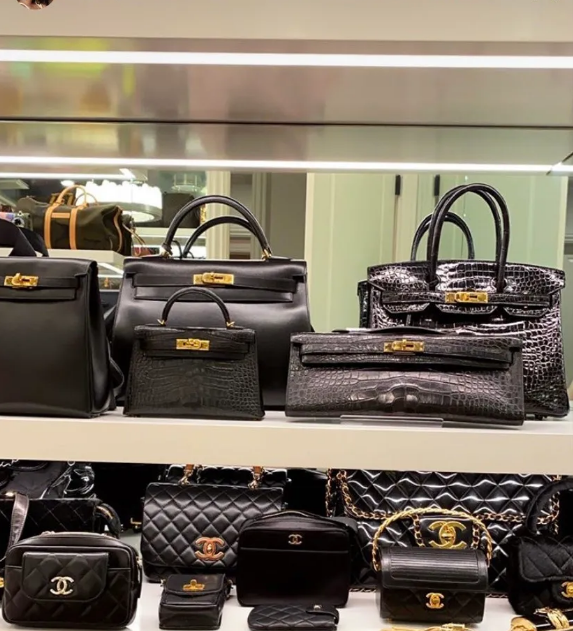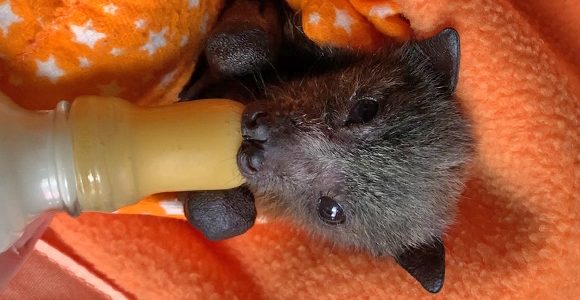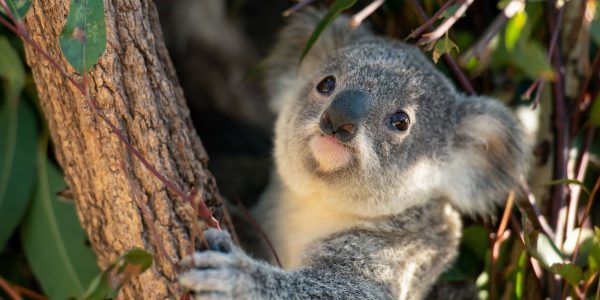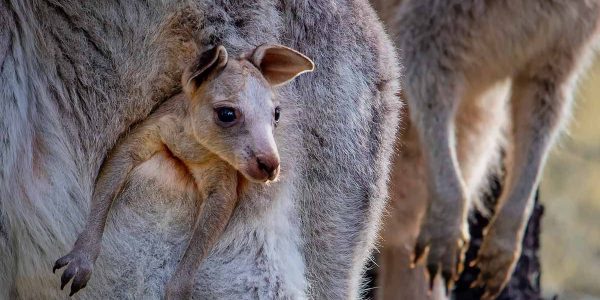A hidden tragedy unfolding.
Just minutes away from where millions travel to experience the enchanting landscapes and wildlife of Australia’s top end, thousands of native crocodiles are confined in desolate battery cages, forced into lives of deprivation and killed in unimaginable ways.
These powerful apex predators, who have helped shape Australia’s unique biodiversity, are being reduced to a life of misery and killed for the sake of profit.
Crocodiles were hunted for their skins to near collapse in the 50s and 60s. But rather than stop the exploitation of this 100-million-year-old species as it teetered on the brink of extinction – or curb the fashion industry’s hunger for their skins – the Australian Government supported a cruel new factory farming industry, one that continues to slaughter crocodiles for ‘fashion’ today.
Each year, tens of thousands of crocodiles are taken from their natural habitats in the wild and raised in factory farms. In the Northern Territory and Far North Queensland, the crocodile skin industry is farming crocodiles at an alarming rate, slaughtering just over 150,000 of these sensitive animals annually and fuelling 60% of the world’s crocodile skin trade.
Australian crocodiles suffer to drive the profits of global fashion juggernauts like Hermès and Louis Vuitton. Their skins are used to make bags that sell for tens, sometimes hundreds of thousands of dollars. The fashion industry only desires the skin from the underside, or ‘belly’ of the crocodile. The ‘rest’ of this incredible animal is sometimes sold to people in restaurants and cafes, but most is turned into pet food.
The crocodile skin industry’s claims of ‘conservation’ and ‘humane’ practices are nothing more than a deceptive greenwashing tactic. In reality, it ruthlessly profits from the undeniable suffering of these sentient animals.

